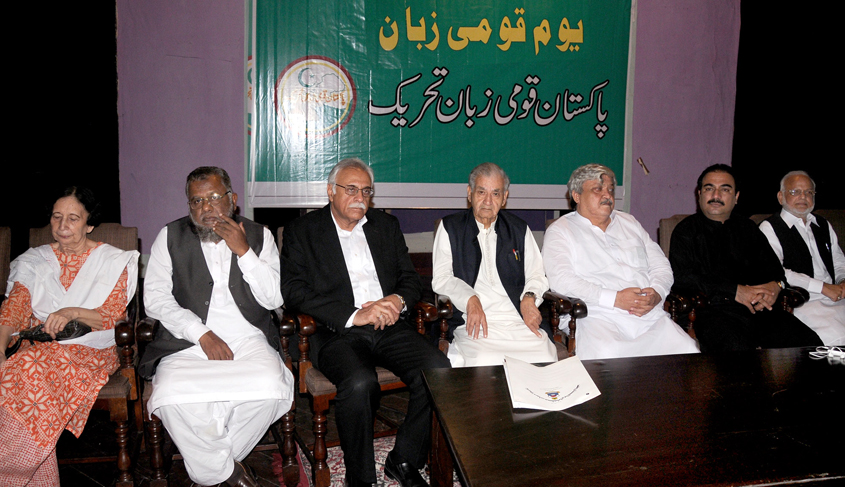
“We create hurdles for Urdu speakers very early. They unable to excel in higher education because they are not well-versed in English,” Azad said.
He was addressing a seminar at Alhamra on The Mall. The seminar was organised by Pakistan National Language Movement to urge the government to enforce a Supreme Court order issued last year on September 8. The SC had ordered the federal and provincial governments to adopt Urdu as the official language.
Talking to The Express Tribune, Azad said, “By ignoring our mother tongue, we have alienated the working class. They have no platform to flourish intellectually, career-wise or in academia.”
“Our civil servants are expected to be proficient in English. This is strange. When they deputed to deal with administrative issues in small towns, they should be able to converse in the local language,” he said.
Azad said Urdu was one of the basic features of Sir Syed Ahmed Khan’s Two-Nation Theory.
“It was one of the major issue in years leading to the Partition. It is unfortunate that later, Pakistan’s education and bureaucratic procedures diverged from Muhammad Ali Jinnah’s vision.”
Professor Salim Hashmi, the spokesman and president of the Lahore chapter of the movement, raised similar concerns. “No country has developed by adopting a foreign language,” he said. “We have failed to produce scholars. One or two success stories in a population of 182 million should not be considered encouraging,” Hashmi said.
“Our average pass percentage is not more than 60 per cent, which means that out of every 100 students, more than 40 unable to pass their exams,” he said. Hashmi urged the government to adopt Urdu as the official language to create a pro-people bureaucratic and education system.
“The movement for revival of Urdu has been working to bring about change in three areas: scientific research, education and the bureaucracy. We believe that unless Urdu is adopted as the official language, all three will continue to deteriorate.”
Pakistan National Language Movement women wing head Fatimah Qamar said that the consequences of adopting a foreign language could be seen in CSS results.
“The pass percentage is 2.1 percent compared to more than 20 percent in the past,” she said. “This shows that individuals, who may be brilliant in studies otherwise, but not very good in English, are finding it difficult to pass the exams.”
“Despite adopting English language as the medium of instruction and despite a surge in English medium schools, Pakistan ranks very low in literacy and education outcomes,” Qamar said.
“Our biggest issue with teaching of English - which starts at kindergarten level – is that a child is trained to learn in English, whereas another language is spoken outside of school and in public spheres,” she said.
Qamar said this was confusing for children and hindered the learning process.
“Nowhere in the developed world are children taught to begin learning in a foreign language,” she said.
Published in The Express Tribune, September 10th, 2016.

















COMMENTS
Comments are moderated and generally will be posted if they are on-topic and not abusive.
For more information, please see our Comments FAQ